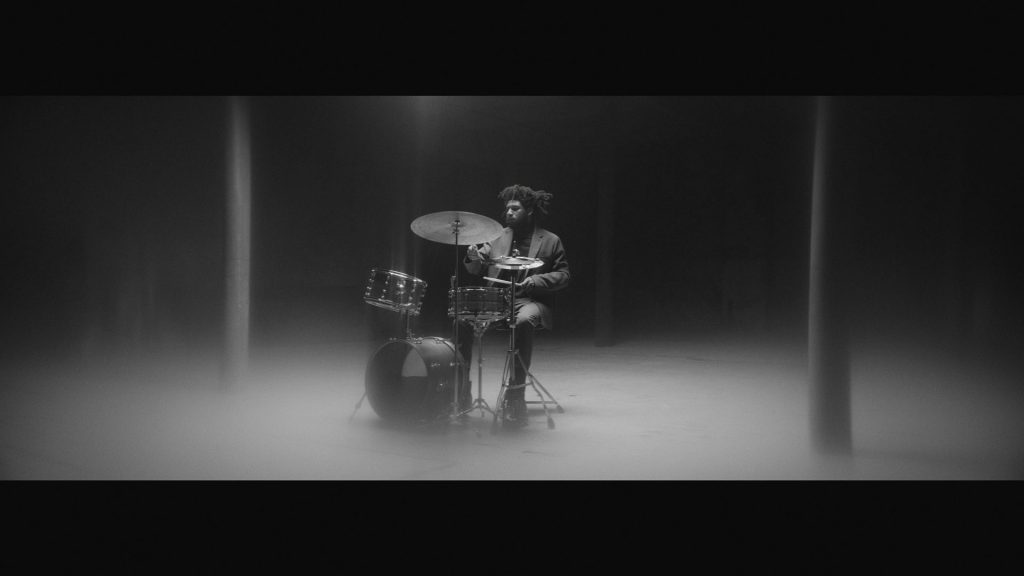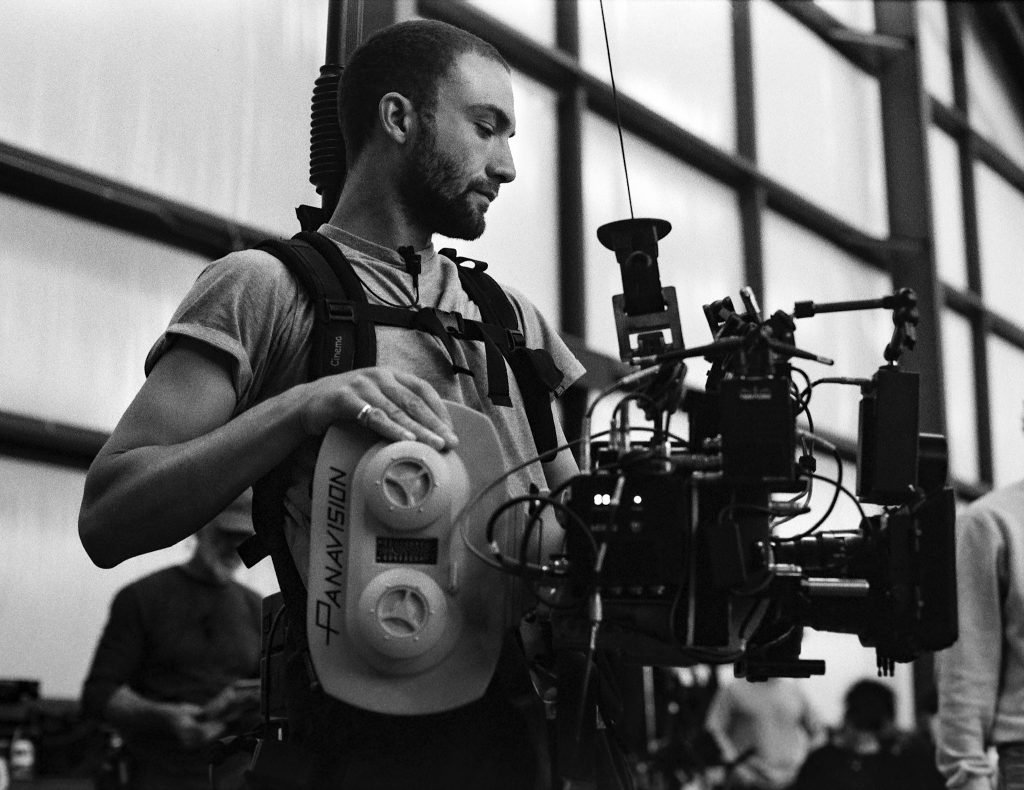Throughout February, we are featuring a series of discussions with some of today’s most influential Cinematographers and Gaffers of color. These artists talk about their journey into the industry, advice to young aspiring artists, and the art that has had an impact on their work. This edition features Cinematographer Chayse Irvin (Hannah, BlackKklansman, and the upcoming film Blonde.)
When did you become interested in working in film? What made you want to get into the industry?
When I was in high school I had two primary interests, that was Basketball and Movies. My brother and I had an interest at a very young age and made little movies with our uncle’s camera that he shared with us when he could, and every year when we stayed with our uncle he would share with us his favorite films as well. At about age 16, I had a work experience program in my high school, my mother was teaching singing to a Producer/Production Designers daughter, David Willson, he agreed to take me to set and there I felt connected to the sense of community and creativity that the industry offered.
Describe your journey in becoming a Cinematographer. Historically speaking, the camera & lighting community has not been very diverse. What was the process like for you?
I met a diverse group of friends and ended up teaming up after school doing music videos for local hip-hop artists. We were all from different places, Uganda, Ecuador, Iran, the Philippines, etc. Also, the film industry in Vancouver grew a lot when I graduated from my film program, I was 20 and there was not much diversity in the Vancouver film industry. I first found work in a grip and lighting rental house named William F Whites. I started in the cable department, coiling cables, but the next day a very nice man, I forget his name sadly, he was black as well, he was working in the lighting repair unit and recruited me and trained me to work alongside him, I feel very grateful thinking of him at this moment. 6 months later I was recruited again to work in the union, the union was seniority-based to protect the work for the most senior members, which I think made it even harder for minorities and young people to join the industry because the system served to protect those who built the industry originally there. But because there was a massive wave of work the membership opened and I got in and worked as an ASAP call for a long time, then was able to work for longer stints on various shows, I was grateful for this as well because my experience was limited to what I learned in film school and I learned a lot working on challenging shoots where some of the lighting setups were quite big and needed heavy labor, things have only gotten easier over the years in many ways thanks to LED. The instability was painful, but the payment was good so I could work a few days a week and concentrate on using the money to put together the things I wanted to do with my crew, and invest in myself and nurture my passion through developing my skills. I found most of my early shoots on craigslist where I was meeting people of all sorts of racial backgrounds and collaborating.
What advice would you like to give young Black aspiring Cinematographers?
1. There is a need for equality in black America, centuries of cruelty and humiliation wielded by oppressive systems. Connect with that suffering, create, and express it… the empathy I have received for myself independently and from others through my work created a massive amount of healing in myself. One of the greatest artists I’ve met, Storyboard P, he called it “dark matter”, use it.
2. And if you value the quality of connection the spectator has to your images, and want to build on that, work for only intrinsic reasons, and abstain from working for money or status, this is the trick we’ve been manipulated into thinking to make us slaves to authority because tragically these extrinsic rewards come at a terrible cost to quality of connection over time. It disconnects you from truly living a fulfilling life by disconnecting you from the real rewards… the reward of creativity, community, companionship, freedom, and meaning.
What are some changes you believe the industry should make to help Black filmmakers have their voices heard moving forward?
Advice = Shut up for a second and listen! Haha, I say that not seriously… but these black voices have always been here, just listen for it, right now it’s a whisper, listen closely, connect with it, with compassion and love. And accept resentment as a beautiful gift, it’s an expression of pain and truly filled with the desire to be heard. We’re doing our part and giving you the deepest part of our souls, I don’t want you to hear it and feel guilt or shame, this alienates us even more, I want you to feel sad, but a good kind of sad, the kind of sad that comes with a gentle touch.
Growing up, did you have any inspirational Directors, DP’s, Gaffers that have inspired you.
Good god, so many. I spend many years developing my cinematic literacy. Consuming so much. Connect deeply with the simplicity of Michael Haneke, the spontaneity of Christopher Doyle, and the innovations of Mike Bauman.
What are some of your favorite films that have influenced your work?
Manhattan (Romantic), A Prophet (Magical-realism),
Could you tell us about a show or project you are currently working on?
I am starting a film that I am unable to discuss but will be able to share with you in the future.
You can catch Chayse Irvin’s latest work in Blonde which is due to hit theaters later this year. Keep up with Chayse on his Instagram @chayseirvin.


